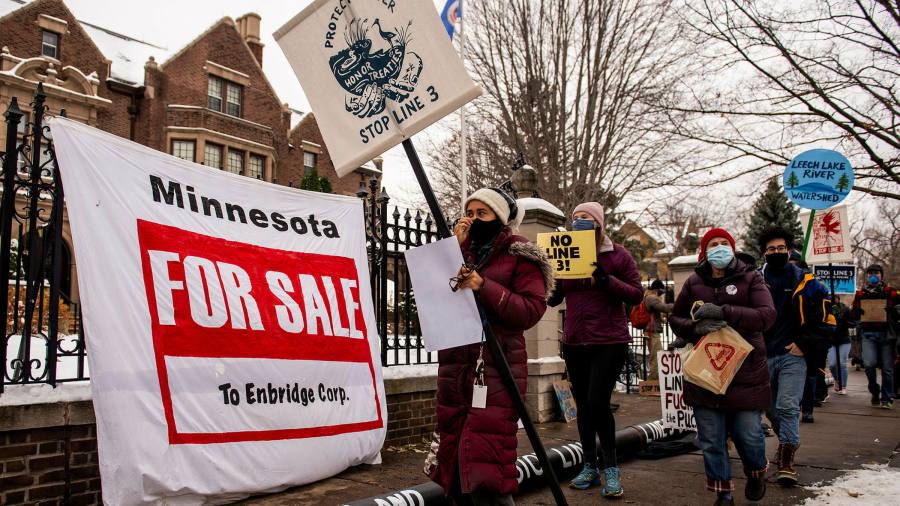[ad_1]
What a difference two weeks make. America’s new president has taken admirably little time to address the climate change challenge his Democratic predecessor, Barack Obama, called the greatest threat to future generations. Within days of taking office, Joe Biden unveiled a series of measures to start redressing the four years of climate inaction that are among the unhappiest legacies of the Trump administration.
As an opening foray, his steps have much to recommend them. They foreshadow a far more ambitious climate plan than Mr Obama ever attempted. Yet they contain some conspicuous omissions that underline the vast political effort that will be required to turn policy into reality.
Some of Mr Biden’s most eye-catching moves were also the easiest to take. Re-committing the US to the Paris climate agreement, as he did within hours of being sworn in, carries great symbolic weight but will make little difference by itself to global endeavours to cut carbon emissions. As the world’s largest economy, and the second-largest emitter after China, the US must also show it can cut its own reliance on fossil fuels and the greenhouse gases they produce when burnt.
Here, Mr Biden has stepped more gingerly. His order to pause new oil and gas leases only applies to federal land and waters, which account for less than a quarter of US oil production. In keeping with his campaign pledges, the freeze also stopped short of an outright ban on fracking. The leasing moratorium is still a sharp departure from the Trump administration’s determination to maximise fossil fuel production, but it is a reminder of the political hurdles that lie ahead.
So too is his order for federal agencies to eliminate fossil fuel subsidies “to the extent consistent with applicable lawâ€, and his failure to set out a detailed national plan for pricing carbon. A considerable portion of fossil fuel incentives are managed not by the president but by Congress, which has also repeatedly squashed carbon pricing bills.
Mr Biden will undoubtedly encounter the same obstacles as his predecessors when it comes to gaining Congressional approval for the legislation needed for enduring climate action, not measures easily overturned by a successor. One early sign of what lies ahead comes in the form of West Virginia’s Senator Joe Manchin, the Democrat who will lead the Senate energy committee. A staunch defender of his state’s coal industry, Senator Manchin once shot a climate change bill with a hunting rifle in a campaign advert.
Climate Capital

Where climate change meets business, markets and politics. Explore the FT’s coverage hereÂ
It is, then, no surprise to see Mr Biden cast his decision to require federal agencies to buy zero-emissions vehicles and clean electricity as efforts to spur employment, not just cut emissions. The measures came in a presidential executive order that mentioned “well-paying union jobs†six times and repeatedly emphasised the jobs to be created by tackling climate change.
This approach is welcome. Trade unions and climate campaigners have spent more than 20 years arguing for a “just transition†to a clean economy that protects all workers, including those whose jobs are at risk from a shift away from fossil fuels. Yet governments have often struggled to produce the policies to achieve this.
Mr Biden should have a better shot than most at succeeding. He is set to tackle climate change in a way no US president has done before by appointing a team of senior climate experts and embedding climate policy across his administration. That integrated strategy should serve as a model to governments worldwide. If Mr Biden is lucky, it could also allow him to turn his ambitious climate plans into reality.
[ad_2]
Source link





